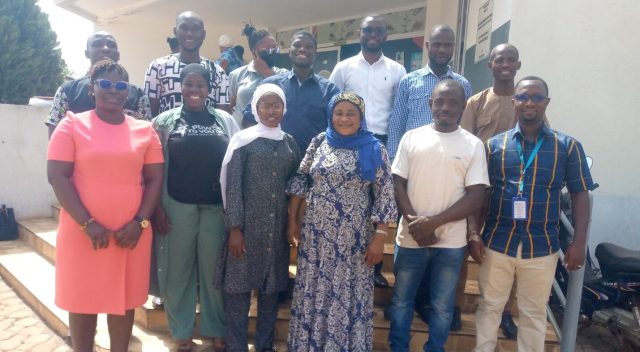By Samuel SAM
Stakeholders within the Water, Sanitation, and Hygiene (WASH) sector are urging for resources to facilitate the rollout of the Citywide Inclusive Sanitation Plan by the Tamale Metropolitan Assembly. This initiative aims to tackle sanitation and hygiene challenges within the metropolis to foster economic growth.
The implementation of the Citywide Sanitation Plan entails a comprehensive assessment of sanitation needs within the Tamale metropolis, with strategic interventions aimed at improving the overall sanitation landscape. This initiative aligns with Sustainable Development Goals (SDGs) 6 and 11, focusing on ensuring access to clean water and sustainable urban development.
Additionally, the plan seeks to enforce Assembly by-laws to deter individuals from flouting sanitation regulations and to ensure the provision of safe and sustainable water and sanitation services to residents in peri-urban and rural communities.
During a recent review meeting held at the Tamale Metro Assembly conference hall, stakeholders highlighted various challenges hindering the effective implementation of the plan. These challenges include poor attitudes, lack of support from some residents, traditional and political interference, as well as inadequate budgetary allocation and planning by Metropolitan, Municipal, and District Assemblies.
Organized by Catholic Relief Services (CRS), the meeting brought together key stakeholders in the sanitation sub-sector to review progress and track efforts aimed at delivering safely managed WASH services to Tamale residents. Discussions centered on adopting a comprehensive approach to sanitation improvement, encompassing long-term planning, innovation, financial mobilization, and institutional reforms throughout the sanitation services chain.
Hajia Sumayatu Alhassan, the Metropolitan Environmental Health Officer/WASH focal person for Tamale Metropolis, emphasized the importance of citizen inclusion in the development agenda to achieve set goals for the Assembly. She highlighted the collaborative efforts undertaken to develop the citywide sanitation plan, involving all stakeholders to ensure effective planning and implementation.
Wahabu Zakaria, Metropolitan Planning Officer, acknowledged the existing sanitation plan but cited resource constraints and enforcement challenges. He stressed the urgent need for action to address poor sanitation issues in the metropolis.
Ing. Richard Agbo Ntibrey, Project Manager for the Integrated Water Resources Management and Climate Change Adaptation (IWARC) project at CRS, emphasized the integrated nature of the plan, linking various development sectors to enhance service delivery. He underscored the importance of supporting Assemblies in implementing policies to safeguard citizen welfare.
While progress has been made in sanitation advocacy programs, including a reduction in open defecation rates, Ing. Ntibrey cautioned that without adequate investment, Ghana may struggle to achieve its sanitation goals by 2030. He expressed appreciation for the contributions of private sectors in addressing sanitation challenges and emphasized the importance of community engagement in environmental stewardship.


















